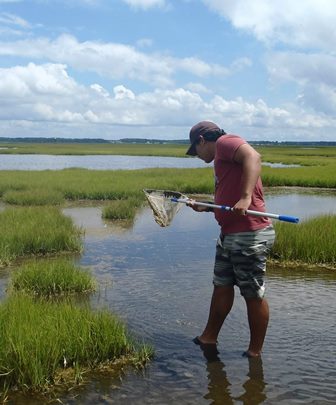Friday, September 23, 2016
UMES center earns $15.5 million to train students in marine science

PRINCESS ANNE, Md. – (Sept. 23, 2016) – The National Oceanic and Atmospheric Administration Office of Education has awarded nearly $3 million to the NOAA Living Marine Resources Cooperative Science Center at UMES to continue its mission of training and graduating students, especially those from underrepresented groups, in the marine and environmental sciences.
The grant will provide $15.5 million over its five-year span to the university, the center’s lead institution, and its partners.
NOAA’s Education Partnership Program with Minority-Serving Institutions (EPP/MSI) presented the award last month at its biennial NOAA EPP Forum, which was hosted by the NOAA Center for Earth System Sciences and Remote Sensing Technologies at the City College of New York.
“This grant will provide sought-after opportunities for students to gain the experience and education they need for a career in marine science,” said LMRCSC Director Paulinus Chigbu.
“Our Center, with NOAA and additional funding earned by LMRCSC scientists, will continue to contribute data and information needed for protection and management of our living marine resources and their habitats, as well as impact the diversity of the marine science workforce,” Chigbu said.
UMES faculty and staff collaborate with six institutions across the country, funding students’ education, research and training at the undergraduate, graduate and post-doctoral levels. The institutions include:
- Delaware State University,
- Hampton University,
- Oregon State University,
- Savannah State University,
- University of Maryland Center for Environmental Science Institute of Marine and Environmental Technology,
- The Rosenstiel School of Marine and Atmospheric Sciences at the University of Miami
Since its inception in 2001, the NOAA LMRCSC has graduated more than 500 students in marine, estuarine and environmental sciences, with about 74 percent from minority populations.
LMRCSC researchers have contributed information needed for the protection and management of more than 20 species of finfish, shellfish and protected species and the protection and restoration of coastal and marine fish habitats. Half of LMRCSC alumni who earned bachelor’s degrees went on to graduate school, and nearly a quarter of master’s graduates went on to doctoral degrees.
Learn more about the NOAA LMRCSC at www.umes.edu/lmrcsc.

